
At Grandpa’s funeral, 18-year-old Dahlia feels isolated as her family fumes over the pitiful $1 inheritance. But when a stranger slips her a secret note, Dahlia is pulled into a mystery only she can solve.
I stood by the graveside, hands clenched in the pockets of my too-small black dress, listening to the priest’s droning voice blend with the rustle of the wind.
This was the saddest day of my life, but everyone else in the family seemed more concerned with glaring at each other than mourning Grandpa.
I could feel their bitterness lingering in the chilly October air, thick like syrup. One dollar each. That’s all Grandpa left us in his will, and they were furious. But me? I wasn’t angry. Just… hollow.
Grandpa wasn’t supposed to be gone. He was the only person who ever saw me, not the mess-up or the spare kid nobody paid attention to, but me. He let me in when no one else cared.
I stared down at the flowers resting on his coffin. I’d brought him a red rose, and it stood out among the white daisies everyone else had placed on the casket.
“One dollar,” Aunt Nancy hissed from behind me. “One damn dollar! That man was loaded, and this is what we get?”
Uncle Vic let out a bitter laugh. “Right? I swear he did it on purpose, the spiteful old man.”
“Typical Dad,” Mom muttered, crossing her arms tight across her chest. “He always played favorites, and Dahlia here was his little pet. Bet she got something we don’t know about.”
Aunt Nancy’s eyes cut toward me, sharp as glass. “What did he leave you, Dahlia? Anything? Don’t act like you didn’t get something.”
I stiffened. “I got the same as all of you.”
Mom’s fingers tightened over my shoulder. “Are you sure?” she asked in a low voice. “You were always with him. Maybe he told you something… think hard, Dahlia. You owe it to your family to share whatever he gave you.”
Memories came rushing back of Grandpa’s goofy stories about long-lost treasure and the butterscotch candies he always kept in his coat pocket.
Sometimes, he’d wink at me and say, “One day, kiddo, I’m leaving you a treasure. Real treasure!” But it was just a game, a joke between us.
I shook my head and turned my gaze back to the coffin. “What Grandpa gave me was his love, his stories, and a place that felt more like home than my actual home. Those things were worth more than money, and there’s no way I can—”
“Nobody cares about any of that!” Mom snapped. “Think, girl! What happened to all of his money?”
I shrugged. I truly didn’t know the answer to her question and didn’t care. Grandpa was gone. He was my confidant, my safe place, my friend. I’d lost the most important person in the world, but all they cared about was slapping a price tag on his death.
“She knows something,” Vic muttered, loud enough for me to hear.
Their voices twisted together, accusing, scheming — like they could squeeze secrets out of me if they tried hard enough. But I had no secrets that could earn them more money.
The second they realized there’d be no fortune, they turned away from the grave and stormed off. I could still hear them bickering as they walked away, lashing out at each other like vultures. It made me sick.
“You must be Dahlia.”
I looked up to see a woman, maybe in her 60s, with kind eyes and a worn leather bag slung over her shoulder. Her smile was soft and secretive, like she knew something the rest of us didn’t.
“I was a friend of your grandpa’s,” she said, leaning in as if we were co-conspirators. “He asked me to give you this.”
Before I could respond, she slipped a folded piece of paper into my hand and whispered, “Don’t let anyone see it, especially your family.”
Her presence felt surreal, almost dreamlike, and before I could say anything, she was gone, swallowed by the crowd of mourners. My heart pounded in my chest as I unfolded the note.
111 locker — Southern Railway Station.
For a second, I stood frozen, the words blurring in front of me. Then it hit me: Grandpa’s “treasure.” A laugh bubbled up from my throat, inappropriate and wild, but I couldn’t help it. He wasn’t joking after all.
That night, I lay in bed staring at the ceiling. The note was tucked under my pillow like a secret. Grandpa’s voice echoed in my mind, playful yet certain: “Locker number 111… There’s treasure in there, kiddo!”
A weight settled on my chest, something between grief and hope. What if this wasn’t just some wild goose chase? What if Grandpa had really left something for me, hidden away where no one else could reach?
The thought twisted around in my mind until I couldn’t take it anymore. I needed to know what was in that locker.
I called a cab the next morning. It was the first thing I did after I woke up. As I tiptoed past the kitchen, I could hear Mom muttering on the phone about Grandpa’s will, probably trying to squeeze sympathy or cash out of anyone who would listen.
I clenched my jaw and slipped out the door, the chilly morning air hitting my skin like a slap.
The ride to Southern Railway Station felt like the longest 20 minutes of my life.
My knee bounced with nervous energy as the cab wound through narrow streets, past graffiti-covered walls, and empty coffee shops just starting to open. The driver glanced at me in the rearview mirror but didn’t say a word.
When we finally pulled up at the station, I stepped out and asked him to wait for me. I clutched the note tightly as I entered the train station.
The station smelled like diesel and stale popcorn. People rushed past me in every direction — commuters, travelers, strangers with places to go.
I hesitated at the entrance, suddenly feeling small and out of place. But then Grandpa’s voice floated back into my mind, steady and reassuring: “Real treasure, kiddo.”
I took a deep breath and headed toward the lockers and I could hear my heart pounding. Rows of metal boxes lined the wall, each one looking identical: gray, dented, and slightly rusty.
My eyes scanned the numbers until I found number 111.
I reached into my pocket and pulled out the folded note. The key was taped to the back. With trembling fingers, I peeled it off and slid it into the lock.
For a second, it jammed, and I panicked. But then — click! The lock turned, and the door swung open.
Inside was a duffel bag. It was old, faded, and heavy. My hands shook as I pulled it out and unzipped it.
The bag was full of cash. Bundles upon bundles of it!
I gasped, my mind reeling. It couldn’t be real, could it? I reached in and pulled out a stack, flipping through crisp hundred-dollar bills. There had to be at least $150,000 in there.
And tucked inside the bag was another note, written in Grandpa’s messy scrawl:
For my beloved granddaughter, everything I saved is now yours. Take it and live free, kiddo. The rest of the family may not see your worth, but I’ve always believed in you.
Tears blurred my vision, and I hugged the note to my chest, a knot forming in my throat. This wasn’t just money. It was freedom — a way out.
Grandpa always knew how badly I needed to escape this family. And now, he’d given me exactly what I needed and tricked everyone else in the process!
I zipped the bag shut, slung it over my shoulder, and walked out of the station, my heart pounding in tune with my footsteps.
The early morning sun was just starting to peek through the clouds, casting everything in a soft, golden light. For the first time in years, I felt… light.
During the cab ride back, I stared out the window, watching the city come to life. I had options now. No more suffocating family dinners, no more being ignored or treated like an afterthought, no more being the family scapegoat.
I could leave. I could build something new.
The thought scared me as much as it excited me, but Grandpa’s voice echoed in the back of my mind: “Live free, kiddo.”
As the cab pulled up to my house, I made my decision. I wasn’t staying. Not another minute!
I didn’t even bother going inside. I pulled out my phone, booked a ticket to anywhere, and told the driver to head straight to the airport.
With the duffel bag in my lap and Grandpa’s note tucked safely in my pocket, I smiled for the first time in days.
I was free. And for the first time in my life, I knew exactly what that meant.
Matthew Perry has reportedly died. The “Friends” actor was 54
Actor Matthew Perry, famously known for the role of Chandler Bing in the iconic show Friends, was found dead Saturday in a hot tub at his Los Angeles home, law enforcement has reported.
Spokesperson of the LA Fire Department reported that first responders arrived at Perry’s home at about 4 p.m. regarding a “water emergency” of an unknown type, but did not name the actor. Sadly, upon arrival, they discovered Perry’s unresponsive body. According to them, there were no drugs of any type at the scene. At the time being, no foul play is suspected.
A representative of the actor hasn’t issued any comments regarding the tragic incident.
The investigation over Perry’s passing is still ongoing and the cause of death remains unknown. It will be determined by the Los Angeles County coroner’s office at a later date.
“We are devastated by the passing of our dear friend Matthew Perry,” Warner Bros. Television Group, which produced “Friends,” said in a statement to The Times. “Matthew was an incredibly gifted actor and an indelible part of the Warner Bros. Television Group family. The impact of his comedic genius was felt around the world, and his legacy will live on in the hearts of so many. This is a heartbreaking day, and we send our love to his family, his loved ones, and all of his devoted fans.”
“We are incredibly saddened by the too soon passing of Matthew Perry,” NBC, which aired the series for all 10 seasons, said in its own statement to The Times. “He brought so much joy to hundreds of millions of people around the world with his pitch perfect comedic timing and wry wit. His legacy will live on through countless generations.”
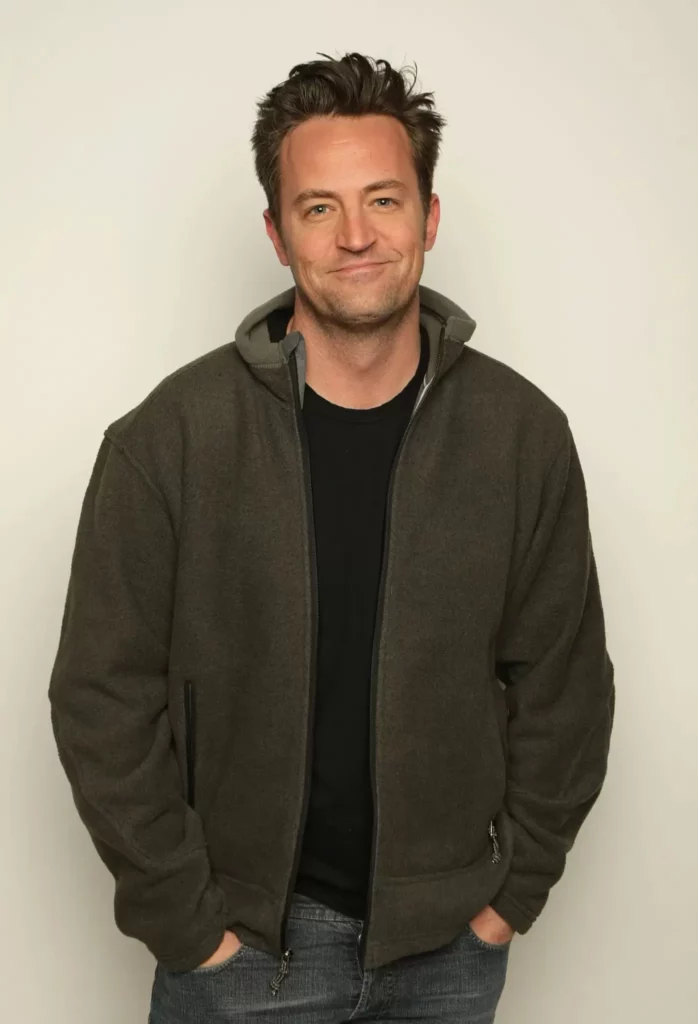
Saturday evening yellow-and-black LAPD crime scene tape blocked off the entrance to Blue Sail Drive, a tony street just off the Pacific Coast Highway at the crest of a hill with sweeping views of the Pacific Ocean.
Shortly after 7 p.m., as multiple helicopters whirred overhead, Perry’s mother, Suzanne, and her husband, broadcaster Keith Morrison, joined the journalists and LAPD officers on the scene. Morrison declined to comment. An LAPD officer at the scene said he had no information and that he did not know when any would be forthcoming.
Peter, a neighbor of Perry’s on Bluesail Drive who declined to give his last name Saturday evening, said he only spoke to the actor once, for five minutes, and that he was “very pleasant” and a “nice guy.”
“It’s shocking,” Peter said as he waited for the LAPD, who had barred journalists from passing the police tape, to approve him for entry. “He’s been redoing this house forever and he seemed fine. It’s very sad.”
Leo, another neighbor who declined to give his full name, said he was home when an ambulance arrived at Perry’s house Saturday afternoon. He declined to say whether paramedics tried to revive Perry or if a body was removed from the premises.
“I was shocked,” he said. “It was very disturbing and sad after all these years.”
Perry was one of his favorite actors, Leo said, and the funniest member of the “Friends” cast.
“I encountered him once and he was very, very friendly. More so than I thought,” Leo said. “It’s definitely a tragedy, especially at such a young age,” he added. “I was very heartbroken to see what happened.”
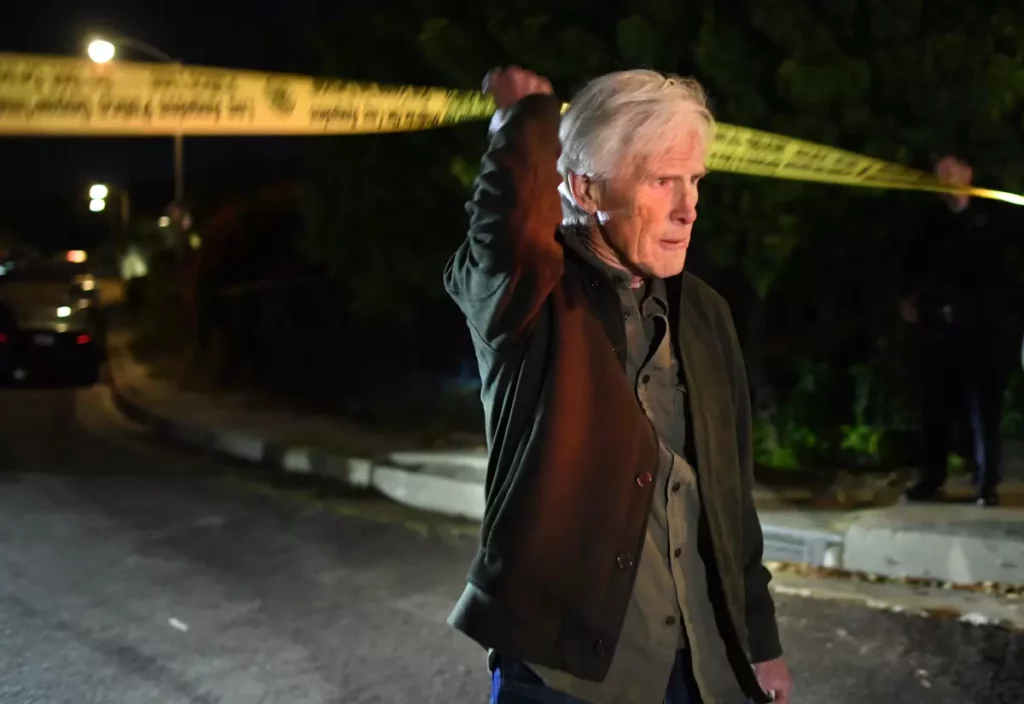
(Wally Skalij / Los Angeles Times)
Perry, the son of actor John Bennett Perry and Suzanne Marie Langford, onetime press secretary of Canadian Prime Minister Pierre Trudeau, was born in 1969 and grew up between Montreal and Los Angeles after his parents separated when Perry was 1.
He got his start as a child actor, landing guest spots on “Charles in Charge” and “Beverly Hills 90210” and playing opposite River Phoenix in the film “A Night in the Life of Jimmy Reardon” in the 1980s and early 1990s.
But his big break came when he was cast in “Friends” — originally titled “Friends Like Us” — a sitcom about six single New Yorkers navigating adulthood that premiered on NBC in 1994.
The series soon became a juggernaut, the anchor of the network’s vaunted Thursday-night “Must-See TV” lineup, and turned Perry and his castmates Jennifer Aniston, Courteney Cox, Lisa Kudrow, Matt LeBlanc and David Schwimmer into mega-stars almost overnight. At its high-water mark — for a 1996 Super Bowl episode and the 2004 series finale — the series could notch more than 50 million live viewers; by its end, cast members were earning more than $1 million an episode.
As Chandler Bing, the handsome, wisecracking roommate of LeBlanc’s Joey Tribbiani and, later, love interest of Cox’s fastidious Monica Geller, Perry distinguished himself in a crackling ensemble cast. With his dry delivery he created a catchphrase with a mere turn of inflection, based on banter he’d shared with childhood friends: Could he be any more Chandler?
Soon, he was attached to major stars like Julia Roberts and appearing in prominent films such as 1997 rom-com “Fools Rush In,” opposite Salma Hayek, and 2000 ensemble mob comedy “The Whole Nine Yards” with Bruce Willis.
There was a dark side to the life of one of television’s most beloved funnymen, however. In his 2022 memoir, “Friends, Lovers, and the Big Terrible Thing,” Perry recounted his lifelong struggle with addiction to alcohol and opioids. He wrote that he had his first drink at 14, but didn’t recognize the signs of alcoholism until 21. Since then, he estimated, he’d spent more than $7 million on efforts to get sober, including multiple stints in rehab. His substance abuse also led to a number of serious health issues, including a five-month hospitalization in 2018 following a colon rupture that left him, he wrote, with a 2% chance to live through the night.
And it was fueled, he acknowledged during a “Friends” reunion special in 2021, by the pressure to land the joke in front of a live studio audience night after night.
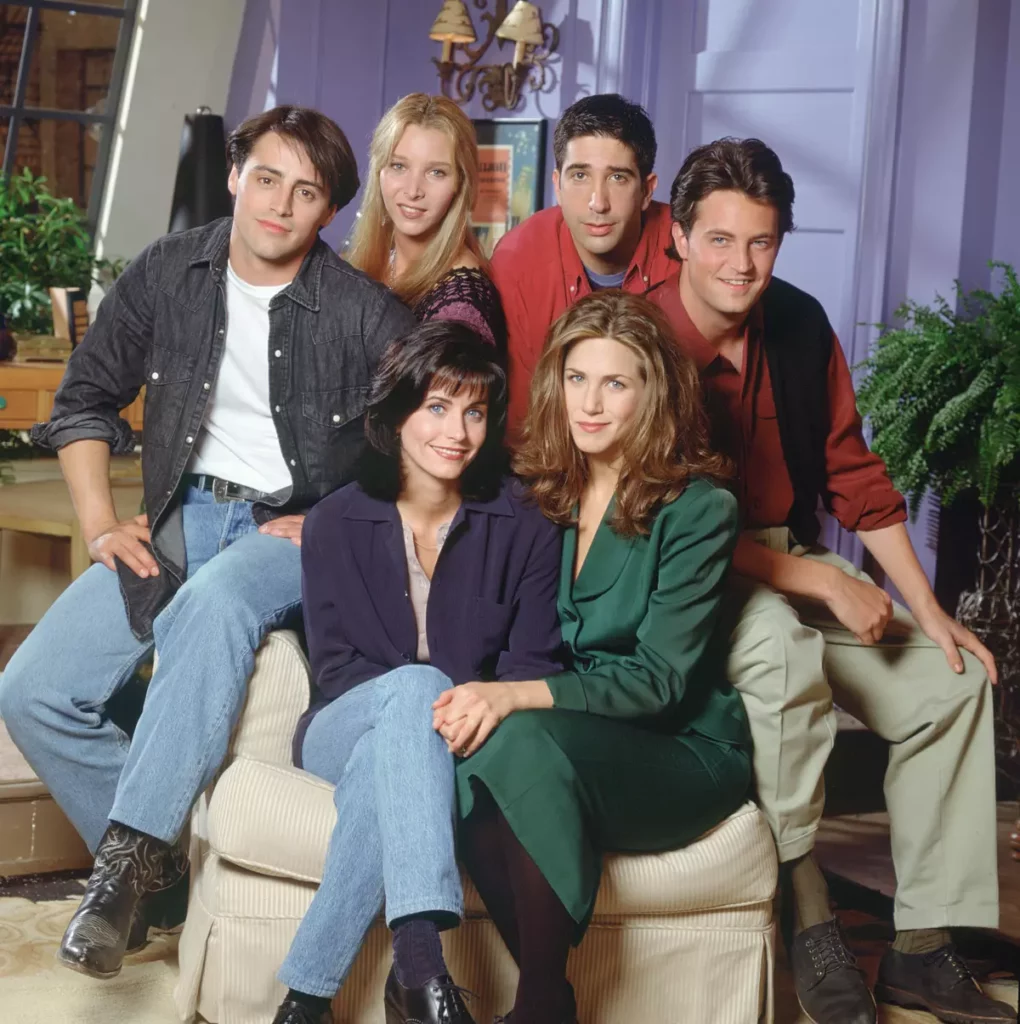
(NBC / NBCUniversal via Getty Images)
“Nobody wanted to be famous more than me,” Perry told The Times in April, discussing “Friends, Lovers, and the Big Terrible Thing” at the Festival of Books. “I was convinced it was the answer. I was 25, it was the second year of ‘Friends,’ and eight months into it, I realized the American dream is not making me happy, not filling the holes in my life. I couldn’t get enough attention. … Fame does not do what you think it’s going to do. It was all a trick.”
Perry was remembered on Saturday by friends and collaborators such as Selma Blair, Paget Brewster, Morgan Fairchild and Mira Sorvino as a singular comic talent and kind soul.
Perry’s “Friends” co-star Maggie Wheeler, who played his on-again, off-again girlfriend Janice on the hit show, shared a sweet tribute on Instagram.
“What a loss. The world will miss you Mathew Perry,” she wrote. “The joy you brought to so many in your too short lifetime will live on. I feel so very blessed by every creative moment we shared.”
He was also memorialized by Canadian Prime Minister Justin Trudeau, Pierre’s son and one of Perry’s childhood friends.
“Matthew Perry’s passing is shocking and saddening,” Trudeau wrote on X. “I’ll never forget the schoolyard games we used to play, and I know people around the world are never going to forget the joy he brought them. Thanks for all the laughs, Matthew. You were loved — and you will be missed.”
Though Perry estimated he had relapsed “60 or 70 times” since first getting sober in 2001, he maintained a steady presence on American television, playing key parts in backstage dramedy “Studio 60 on the Sunset Strip” and therapy sitcom “Go On,” and making a steady stream of guest appearances on acclaimed shows such as “The West Wing” and “The Good Wife.”
Since his near-death experience in 2018, Perry had found solace in friends, frequent games of pickleball and, especially, writing. Though producing “Friends, Lovers, and the Big Terrible Thing” had forced him to relive his darkest moments, it also connected him to “all the sufferers out there”: “I had a story to tell, a story that could really help people,” he wrote. “And helping others had become the answer for me.”
Indeed, for all his success as an actor and, more recently, as a bestselling memoirist, Perry told The Times in April that his work was not the center of what he hoped would be his legacy.
Pressed to name how he’d like to be remembered, he said: “As a guy who lived life, loved well, lived well and helped people. That running into me was a good thing, and not something bad.”
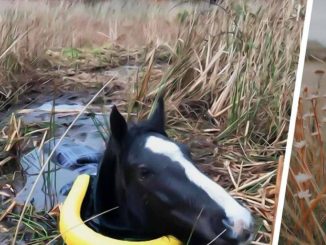
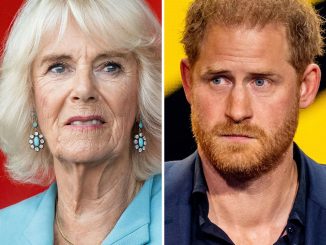

Leave a Reply